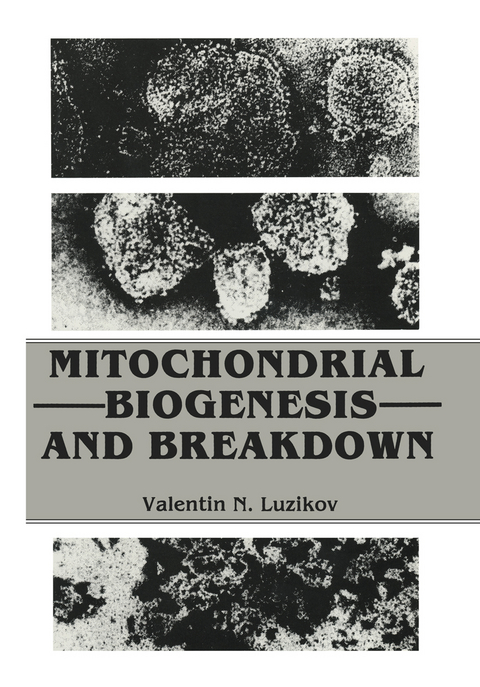
Mitochondrial Biogenesis and Breakdown
Springer-Verlag New York Inc.
978-1-4684-1652-7 (ISBN)
One Structural Organization of Mitochondria.- 1.1 Partitioning of Mitochondria.- 1.2 Structural Organization of the Outer Mitochondrial Membrane.- 1.3 Structural Organization of the Inner Mitochondrial Membrane.- Two General Manifestations and Molecular Mechanisms of Mitochondrial Degradation.- 2.1 General Manifestations of Mitochondrial Degradation.- 2.2 Molecular Mechanisms of Mitochondrial Degradation.- Three Mechanisms of Mitochondrial Stabilization.- 3.1 Role of Oxidative Phosphorylation in Stabilization of Isolated Mitochondria.- 3.2 Studies on the Molecular Mechanisms of Mitochondrial Stabilization in Model Systems.- 3.3 Protection of Mitochondrial Lipids from Peroxidation.- Four Mitochondrial Degradation in the Cell.- 4.1 Mechanisms of Intracellular Mitochondrial Degradation.- 4.2 Role of Oxidative Phosphorylation in Mitochondrial Survival In Vivo.- Five Topography of the Synthesis of Mitochondrial Proteins.- 5.1 Criteria of the Origin of Mitochondrial Proteins.- 5.2 Topography of the Synthesis of Proteins of Different Mitochondrial Compartments.- 5.3 Relative Contribution of Mitochondrial and Cytoplasmic Translation to Mitochondrial Formation.- Six Mitochondrial Assembly.- 6.1 Some Model Systems Used in Studying Mitochondrial Assembly.- 6.2 Mechanisms of Protein Transport Across Biological Membranes.- 6.3 Protein Transport Across Mitochondrial Membranes.- 6.4 Incorporation of Mitochondrial Translation Products into the Inner Mitochondrial Membrane.- 6.5 Assembly of Enzymic Complexes in the Inner Mitochondrial Membrane.- 6.6 Concluding Remarks.- Seven Reconstitution of the Inner Mitochondrial Membrane and its Fragments.- 7.1 Specific Binding of Individual Protein Components to the Inner Mitochondrial Membrane.- 7.2 Mitochondrial Inner Membrane Fragmentation andReassociation of Fragments.- 7.3 Formation of Energy-Transforming and Transport Systems on the Basis of Phospholipid Vesicles.- 7.4 Reconstitution of Enzymic Complexes of the Inner Mitochondrial Membrane.- Eight Control Over Mitochondrial Assembly.- 8.1 Formation of Abnormalities in the Inner Mitochondrial Membrane and Their Elimination During Respiratory System Development.- 8.2 Membrane-Bound Proteinases of Yeast Mitochondria and Their Possible Involvement in the Regulation of Mitochondrial Formation.- Nine A Broader Look at the Prospects for Further Studies.- Addendum.- References.
| Zusatzinfo | XVI, 362 p. |
|---|---|
| Verlagsort | New York, NY |
| Sprache | englisch |
| Maße | 178 x 254 mm |
| Themenwelt | Studium ► 1. Studienabschnitt (Vorklinik) ► Anatomie / Neuroanatomie |
| ISBN-10 | 1-4684-1652-9 / 1468416529 |
| ISBN-13 | 978-1-4684-1652-7 / 9781468416527 |
| Zustand | Neuware |
| Informationen gemäß Produktsicherheitsverordnung (GPSR) | |
| Haben Sie eine Frage zum Produkt? |
aus dem Bereich


